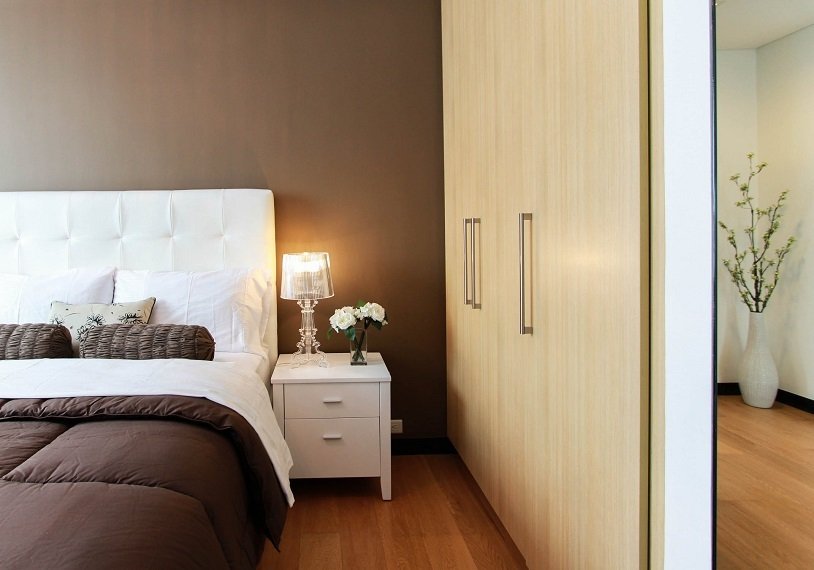RESIDENTIAL TRANSITIONS - WEST ST PAUL Minnesota
- Retirement Homes
- /
- Retirement Homes in Minnesota
- /
- West St Paul Retirement Homes
- /
- Residential Transitions
Residential Transitions
Residential Transitions is a retirement facility located in WEST ST PAUL in the 55118 zip code area. Some of the services it may offer to Minnesota seniors include senior apartments, assisted living, memory care and senior living units. Full list of services and amenities that may be offered by Residential Transitions can be seen below.
Address: 958 ROBERT ST S, West St Paul, Minnesota 55118
County: Dakota County
Licence# 30509
Residential Transitions - Amenities:
Residential Transitions offers a large number of services to senior citizens, including:
- Computer room
- Separate menu for seniors with dietary needs
- Scheduled group trips
- Assistance with relocating to the community
- Concierge service
- Numerous recreational activities on a daily basis
- Walking paths
- On-site hair salon and grooming services
- High definition TVs
- Medication management
- Reading area
- Programs for daily fitness
- Well-lit community dining area
- On-site catering for special occasions
- Weekly laundry service
- Scheduled outings and gatherings for residents and their families
- Community cooking section
- Trained staff available 24/7
- Numerous fun arts & crafts activities
- Flexible visiting hours
- Family environment
- Creative games and activities
- Housekeeping, bed making and linen services
- Outdoor Porches
- Movie room

Residential Transitions - Assisted Living & Care Services:
Residential Transitions provides assistance to senior citizens with many everyday tasks such as:
- Spoon feeding when necessary
- Assistance with dressing
- Continence management program
- Customized care plans
- Special services for Parkinson's disease patients

Residential Transitions - Accommodation Options:
Residential Transitions provides numerous senior living options to seniors, such as:
- Safety measures in all units
- Studio
- Well-equipped apartments with all amenities
- Shared apartments

Frequently Asked Questions
What services are typically offered in retirement communities?
Retirement communities such as Residential Transitions often provide a range of services tailored to seniors' needs. These services may include independent living options, assisted living, memory care, and skilled nursing care. Common amenities include dining facilities, recreational activities, fitness centers, and transportation services. Some communities also offer on-site medical care and assistance with daily living tasks. It's important to research specific retirement communities to understand the services they offer as they can vary widely.
How do I determine if Residential Transitions is the right retirement community for my needs?
Choosing the right retirement community involves careful consideration of your individual needs and preferences. Start by determining your budget and location preferences. Next, assess the level of care you require, whether it's independent living, assisted living, or specialized care for conditions like dementia. Visit potential communities such as Residential Transitions to assess the environment, amenities, and the friendliness of the staff. Talk to current residents to get their perspectives. Additionally, consult with family members and healthcare professionals for their input. Ultimately, the right retirement community will align with your lifestyle, care needs, and budget.
What is the cost structure of retirement communities like Residential Transitions?
The cost of retirement communities such as Residential Transitions can vary widely based on several factors. These factors include location, the type of community (e.g., independent living, assisted living, or memory care), the size of the living space, and the range of services and amenities provided. Monthly fees typically cover accommodation, meals, utilities, maintenance, and some level of healthcare services. Some communities may also require an entrance fee or a buy-in fee, which can be a significant upfront cost. It's crucial to thoroughly review the pricing structure and contracts before choosing a retirement community to ensure you understand all associated costs and payment options.
Are there age requirements to live in Residential Transitions?
Most retirement communities have age requirements to ensure that their residents are of retirement age. Typically, this age is set at 55 or older, but it can vary among communities. Some communities may have specific age restrictions for different levels of care within the community. It's essential to check with Residential Transitions to understand their age requirements and any exceptions they may offer.
Can I bring my pet to Residential Transitions?
The pet policies in retirement communities vary. Some communities are pet-friendly and allow residents to bring their pets, while others have restrictions on the types and sizes of pets allowed. There may also be rules regarding pet care responsibilities and designated pet-friendly areas within the community. If having a pet is essential to you, it's crucial to inquire about the specific pet policies at Residential Transitions and ensure they align with your needs and preferences.
What should I consider when planning for the financial aspects of retirement community living?
Planning for the financial aspects of retirement community living is essential. Start by assessing your current financial situation, including your savings, investments, and income sources such as pensions or Social Security. Determine your budget for monthly living expenses and factor in the cost of the retirement community, including any entrance fees or buy-in fees. Consider whether you may need to access long-term care insurance or Medicaid in the future. It's advisable to consult with a financial advisor or eldercare specialist to create a comprehensive financial plan that ensures you can comfortably afford retirement community living while maintaining financial security.
Consider other retirement facilities nearby:
Other Retirement Facilities:
- Living Well East Emerson - WEST ST PAUL, MN
- Brookdale West St Paul - WEST ST PAUL, MN
- Options Residential Inc/gabrie - WEST ST PAUL, MN
- Charlton Terrace - WEST ST PAUL, MN
- Colonial Court Apartments - WEST ST PAUL, MN
- Everyday Living Smith - WEST ST PAUL, MN
- Colonial Court Apartments - WEST ST PAUL, MN
- Dungarvin/covington Court 376 - WEST ST PAUL, MN
- Bidwell Residence - WEST ST PAUL, MN
- Residential Transitions - WEST ST PAUL, MN
- Everyday Living Hurley - WEST ST PAUL, MN
- Southview Senior Living - WEST ST PAUL, MN
- Walker Methodist Westwood Ridg - WEST ST PAUL, MN
- Charlton Terrace Apartments - WEST ST PAUL, MN
- Walker Methodist Westwood Ridg - WEST ST PAUL, MN
- Brookdale West St Paul - WEST ST PAUL, MN
- Dungarvin/covington Court 374 - WEST ST PAUL, MN
- The Sanctuary At West St Paul - WEST ST PAUL, MN
- Options Residential - 851 - WEST ST PAUL, MN
- Mcclish Manor - WEST ST PAUL, MN
Talk to a retirement living advisor. 100% free, no obligation information.
(888) 989-7961 Sponsored Ad

